Some say that Americans who pretend to be Canadian abroad aren’t fooling anyone. Here’s what’s giving them away
By Vivian Song
Updated 1 hr 39 min ago

Photo Illustration by Jason Lancaster/CNN/Getty ...
Susanna Shankar was traveling solo around Spain this summer, when she was confronted by a fellow traveler who refused to believe she was Canadian.
Shankar was at her hotel when she got to talking with an elderly gentleman with a British accent. As travelers often do, he asked her where she was traveling from. But when she said she was from Vancouver, the conversation took an unexpected turn.
Immediately, the man eyed her with suspicion. He accused her of lying, to the horror of his daughter who urged him to stop giving Shankar the third-degree.
“He just didn’t believe me when I said I was traveling from Canada,” Shankar said. “So I was like, ‘Do you want to see my passport? How do you want to do this?’”
Shankar, 37, is a dual US-Canadian citizen, who runs websites about regenerative and sustainable tourism. Her father is Canadian, her mother American. She grew up in Alaska and lived in the US until the age of 28, lived in Germany for six years, and then moved to Vancouver where she has been living the last four years. For political reasons, Shankar says she identifies less as American and has taken to introducing herself as Canadian. But sometimes, her American West Coast accent can betray her.
“I do think his doubt did stem a little bit from a lot of Americans out there trying to pass themselves off as Canadians,” she added.
Shankar is referring to a decades-old practice known as “flag jacking,” in which some Americans pretend to be Canadian while traveling abroad to avoid anti-American sentiment. Flag-jacking Americans sew the maple leaf flag on their bags and lie about their nationality. It happened as far back as the 1960s and ‘70s during the unpopular Vietnam War, spiked again under George W. Bush’s Iraq War in the early 2000s, and has been revived under the current Trump administration.
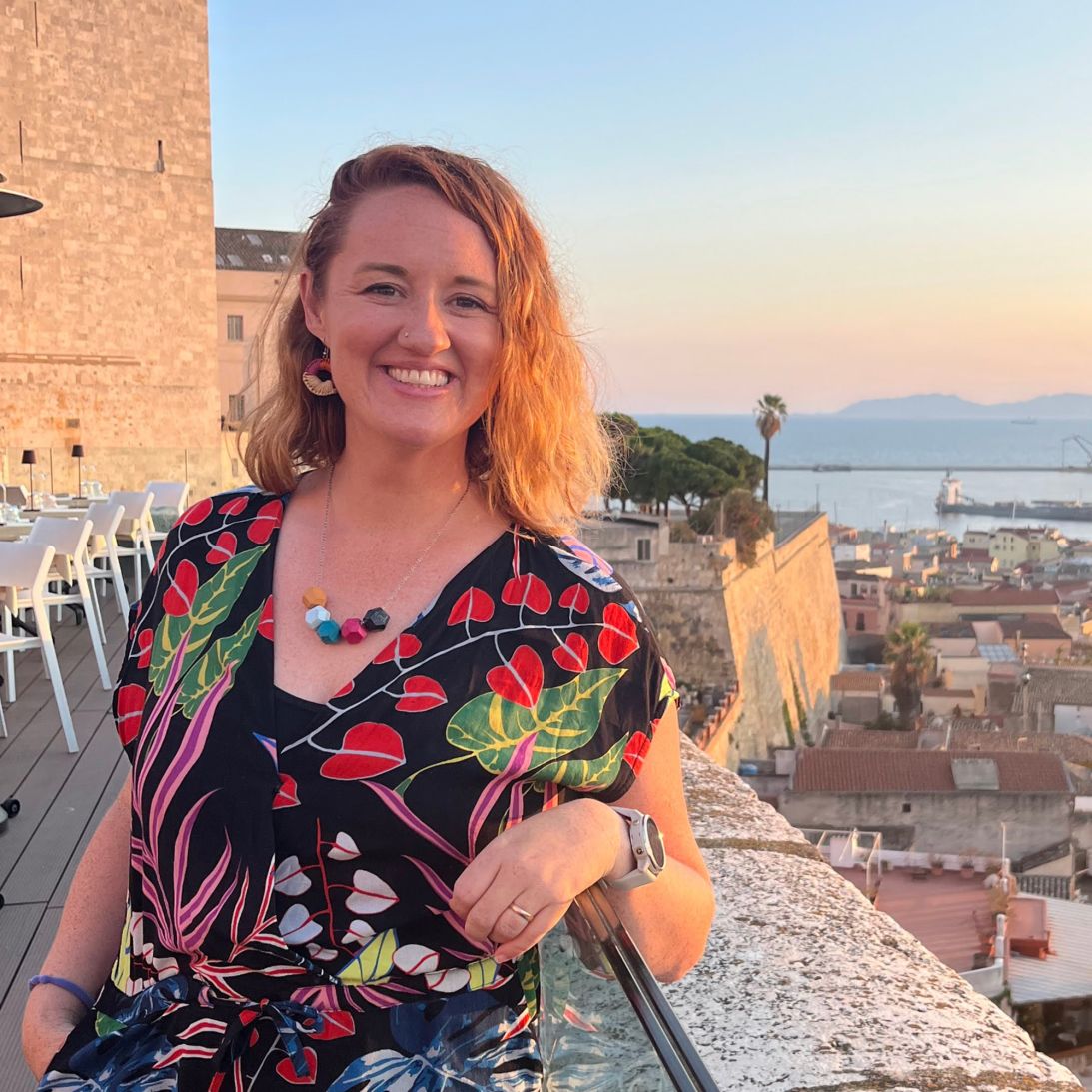
Travel • 8 min read
FOR SUBSCRIBERS
Some say that Americans who pretend to be Canadian abroad aren’t fooling anyone. Here’s what’s giving them away
By Vivian Song
Updated 1 hr 39 min ago

Photo Illustration by Jason Lancaster/CNN/Getty ...
Susanna Shankar was traveling solo around Spain this summer, when she was confronted by a fellow traveler who refused to believe she was Canadian.
Shankar was at her hotel when she got to talking with an elderly gentleman with a British accent. As travelers often do, he asked her where she was traveling from. But when she said she was from Vancouver, the conversation took an unexpected turn.
Immediately, the man eyed her with suspicion. He accused her of lying, to the horror of his daughter who urged him to stop giving Shankar the third-degree.
“He just didn’t believe me when I said I was traveling from Canada,” Shankar said. “So I was like, ‘Do you want to see my passport? How do you want to do this?’”
Shankar, 37, is a dual US-Canadian citizen, who runs websites about regenerative and sustainable tourism. Her father is Canadian, her mother American. She grew up in Alaska and lived in the US until the age of 28, lived in Germany for six years, and then moved to Vancouver where she has been living the last four years. For political reasons, Shankar says she identifies less as American and has taken to introducing herself as Canadian. But sometimes, her American West Coast accent can betray her.
“I do think his doubt did stem a little bit from a lot of Americans out there trying to pass themselves off as Canadians,” she added.
Shankar is referring to a decades-old practice known as “flag jacking,” in which some Americans pretend to be Canadian while traveling abroad to avoid anti-American sentiment. Flag-jacking Americans sew the maple leaf flag on their bags and lie about their nationality. It happened as far back as the 1960s and ‘70s during the unpopular Vietnam War, spiked again under George W. Bush’s Iraq War in the early 2000s, and has been revived under the current Trump administration.

Susanna Shankar, pictured in Malta, is a dual US-Canadian citizen who was recently accused of lying about her origins.
Courtesy Susanna Shankar
Some Canadians, incensed at the trade war that just intensified with President Trump’s 10% tariff increase on Canada and his earlier threats to annex the country, have been calling out the Americans who make light of pretending to be Canadian abroad, posting online comments calling it cowardly, entitled, and a form of cultural appropriation.
Moreover, one of the most common arguments online against flag jacking is that they’re not fooling anyone: Americans are easily distinguishable from Canadians, many say, no matter how many maple leaf flags they’re wearing.
But are they?
Aside from how people measure temperature (Celsius or Fahrenheit), heavy regional accents (French-Canadian or American Southern, for example), and answers to a flash quiz asking “What’s the capital city of Canada?” (answer: Ottawa) and “How do you pronounce Toronto?” (Torontonians don’t pronounce the second ‘t’) — can the world really tell Americans and Canadians apart?
Canadians are ‘more subtle,’ says one travel pro Several European tour guides who work with Americans and Canadians responded with a resounding “yes.”
“Stereotypes exist for a reason,” says Londoner Denisa Podhrazska, who founded Let Me Show You London, which has been organizing private tours for affluent tourists since 2014.
“We use them because many of them are true. And it’s not just Americans, it’s for everybody. Every nation has its own little quirks, that’s how we recognize each other.”
And when it comes to Americans, one of the easiest ways to spot an American abroad is that you hear them before you see them, she says.
“You always hear Americans because they are loud. Really nice, and loud,” she says.
“Canadians don’t stand out as much as Americans. In conversation, they’re more subtle, you don’t hear them from two tables down.”
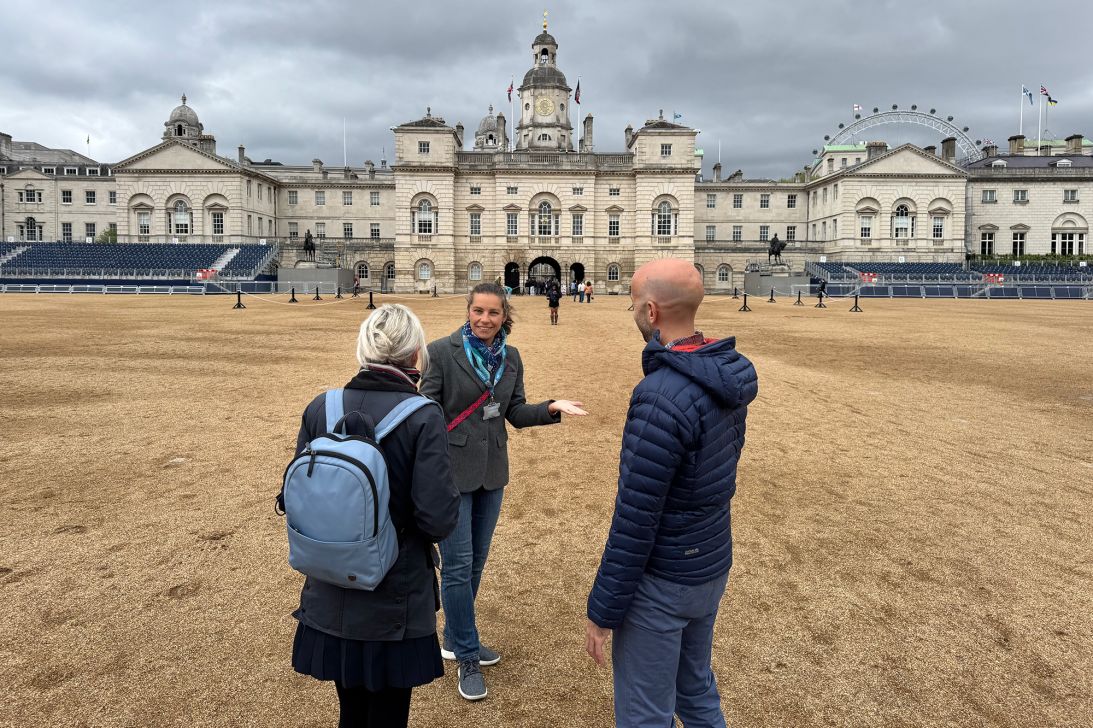
Denisa Podhrazska conducts a tour in London. In her experience, American travelers are "really nice, and loud."
Courtesy Denisa Podhrazska
Canadians abroad often prefer to disclose their origin directly. As the joke goes, how can you tell a person is from Canada? They’ll tell you.
“Canadians will identify themselves as Canadian right away,” points out Parisian Bertrand d’Aleman, founder of My Private Paris tours. Other tour guides agreed, believing Canadians do this to avoid being confused with their American counterparts.
There is little academic research that examines the differences between American and Canadian tourists abroad, according to Kim Dae-young, professor of hospitality management at the University of Missouri.
But his own research offers insight into how a tourist’s nationality, sense of entitlement and perceived social status affect their interactions with a destination.
Related article

Some American travelers are ‘flag jacking’ and Canadians are livid
“The findings consistently show that a traveler’s nationality can significantly influence their behavior abroad,” he tells CNN. “When individuals visit a destination they perceive as more advanced than their home country, they are less likely to engage in misbehavior. The same individuals tend to display more misbehavior when they travel to a country they perceive as less advanced.”
For his research, Kim conducted surveys among Americans who were asked to imagine their travels in France, which was perceived to be a more advanced destination, and Thailand, which they considered to be less developed. His research revealed that Americans were more likely to litter, vandalize or wear inappropriate clothing in Thailand than in France.
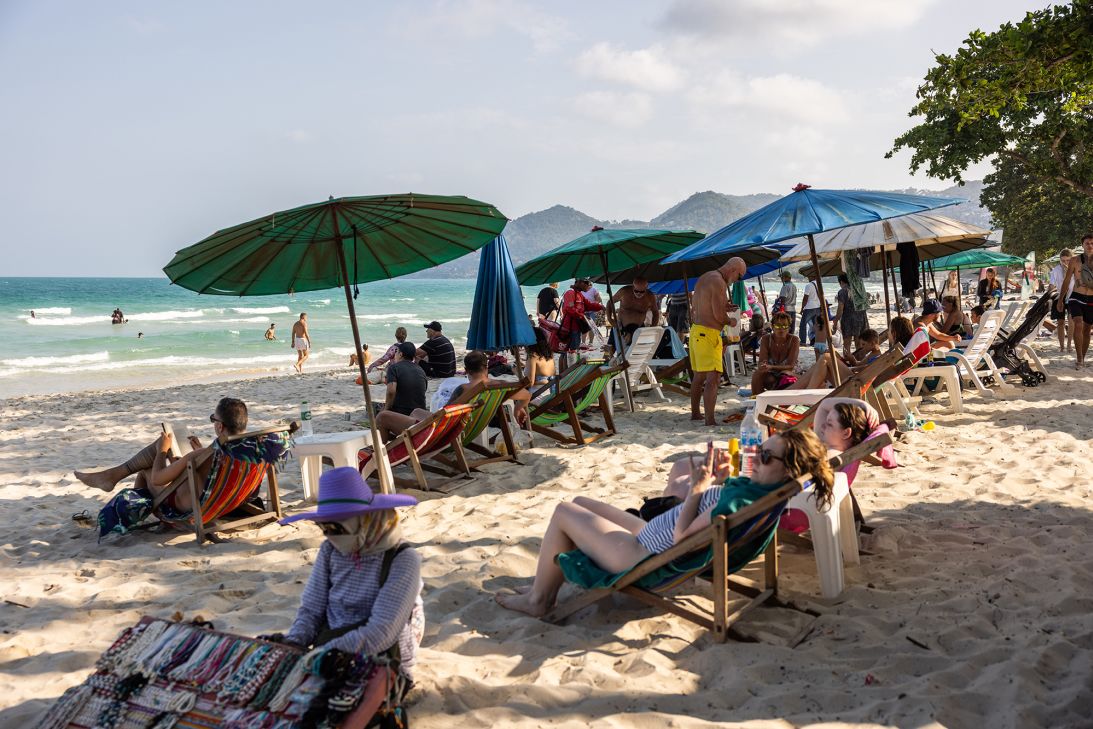
Americans were likely to behave better in France than in Thailand (Koh Samui pictured), according to research by Kim Dae-young, professor of hospitality management at the University of Missouri.
Lauren DeCicca/Getty Images
Americans are more vocal and direct, another guide says Yet while there’s little scientific study, travel professionals have plenty of other observations about the differences in travelers from the US and Canada.
Australian Leigh Barnes, president of the Americas region at tour company Intrepid Travel, says Canadians tend to be adventurous and freewheeling, open to new activities and spontaneity, while Americans tend to favor structure and organization.
Likewise, Canadians are less likely to complain openly if they’re unhappy with something and brood quietly, while Americans are much more vocal if something doesn’t meet their standards, Barnes adds.
“The Americans are a bit louder, ask more questions and are more direct,” he says. “Canadians don’t vocalize if they’re unhappy. And both of those can be pros and cons.”
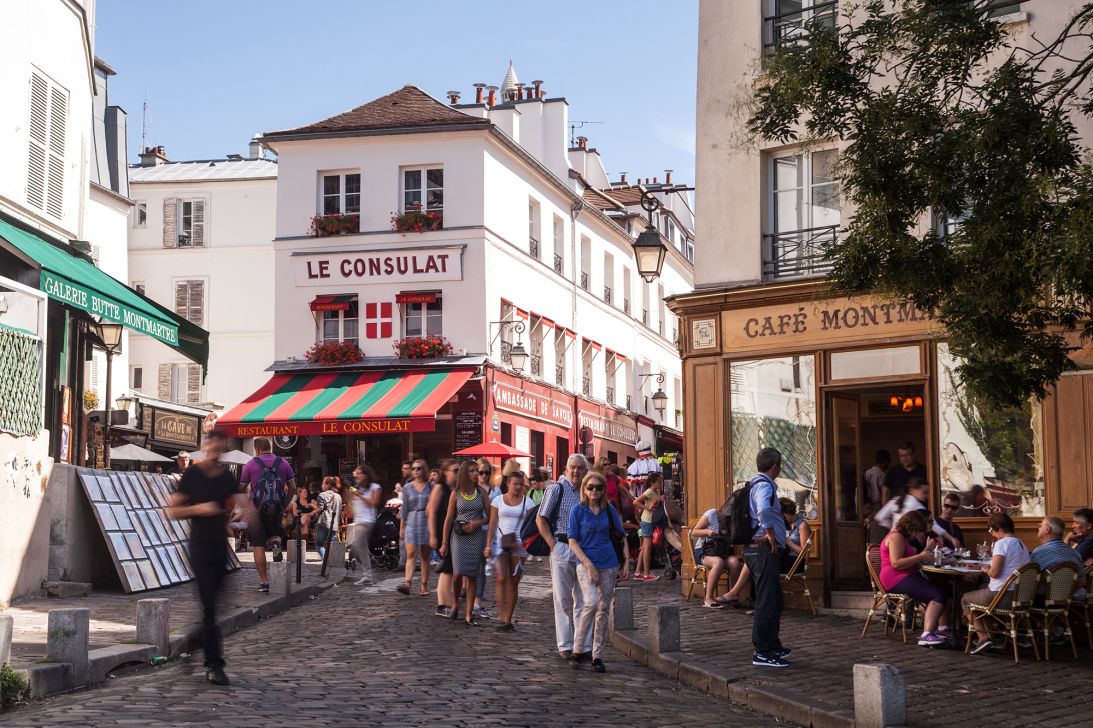
The bustling streets of Paris' Montmartre neighborhood draw crowds of visitors of many nationalities.
Julian Elliott Photography/Stone RF/Getty Images
But real differences begin to emerge as conversations deepen –- subtle cues in attitudes and behavior that shed light on the cultural differences between the two countries.
In separate interviews, Podhrazska and d’Aleman agreed that Canadians tend to have a broader understanding of European history and current affairs than American travelers, owing to their own historical connection with Europe as a Commonwealth country, and their French-Canadian heritage.
Another giveaway that a tourist is American? “US travelers are obsessed with ‘skip the line,’” says Podhrazska. It’s one of the most common requests among her affluent American clients, she says, who are willing to shell out more to move to the front of the line at tourist attractions.
“I blame Disney for this,” she says half-jokingly, referring to the theme park’s expedited access passes (currently called Lightning Lane passes), which create a tiered system of elite versus regular visitors. But by and large, the concept doesn’t exist in London, she says, forcing her to manage expectations among her American clients.
“Everyone has to go through the security queue and do what everybody else does. There’s no special treatment.”
‘You’re on their turf here’ Briton Charley Harrison, founder of the London-based Totally Tailored Tours, also cautions American tourists against assuming that American culture is the default yardstick by which the world is measured. Among her US clients, that’s manifested in the past through their assumption that they can pay abroad with US dollars, or their insistence that the British have an accent – and that they, Americans, do not.
“To me, the subtext is that I speak normally, and everyone else doesn’t.”
Cindy Jaso, 64, a dual US-Canadian citizen who moved from New Brunswick to Texas at the age of 21, did not hesitate in calling out her friend and American travel companion during their European vacation this summer, when the friend complained about the narrow, cobblestone roads, lack of air conditioning, and the fact that some of the locals didn’t speak English well.
“You expect immigrants coming to the US to speak English. You’re on their turf here,” Jaso recalls telling her friend.
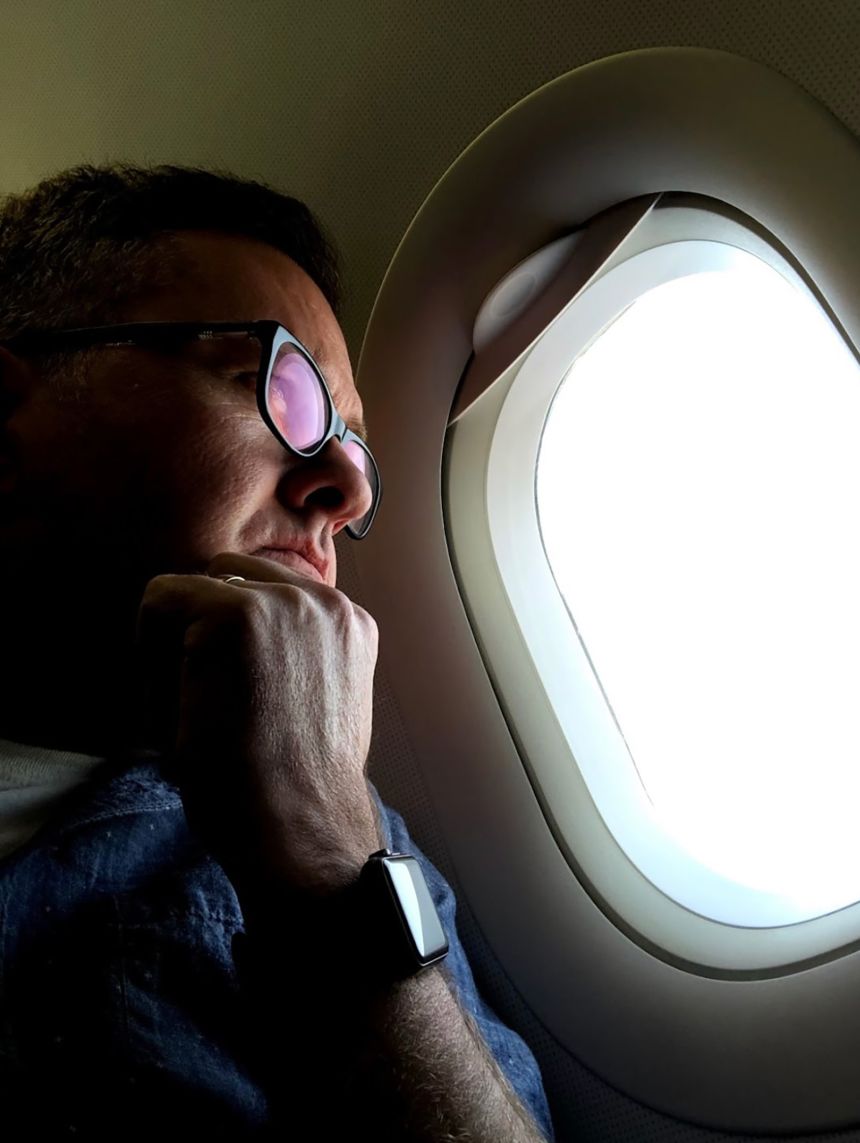
Canadian Stewart Reynolds has an intriguing theory about Canadian behavior that's tied to the weather.
Stewart Reynolds/Brittlestar
Canadian content creator and author Stewart Reynolds, better known to his 500,000 online followers as Brittlestar, has carved out a niche as a cultural commentator on all things Canadiana. His catalogue of TikTok videos includes, “ Explaining Canada Day to Americans” (and why to celebrate universal healthcare, maternity leave and poutine) and cheeky tutorials like, “How to be Canadian: Know your Sorries” (“Sorry you bumped into me.” “Sorry I bumped into you.” “Sorry, I’m not actually sorry.”)
Reynolds’ offers a broader overview about the differences between Canadian and American travelers abroad, first with a disclaimer, then with a weather analogy.
“Canada’s got jerks. We’ve got a lot of jerks,” he tells CNN. “But on the whole, I think that Canadians generally try to find the best for the group, whereas Americans are very much for the individual.”
That might mean going to the back of the line instead of trying to find a shortcut, and waiting for their turn. Because Canadians value order, he says.
And though it may sound like a glib explanation at first, Reynolds offers up a simple hypothesis that reduces this cultural trait down to one thing: weather.
“I think the collectivist attitude comes down to the environment,” says Reynolds, who lives in Stratford, in southwestern Ontario. “Canadian winters can be life or death sometimes and everyone needs to get their car pushed out of a snowbank every now and then. Everyone needs to shovel someone else’s driveway.”
‘A unique, authentic version of themselves’ For Shankar, the dual US-Canadian citizen, differences between Canadians and Americans lie in the way they “hold space” in a conversation and in public.
“In the US, we’re raised to be confident, and you move through life with that confidence. So Americans tend to be a little more bold. And I think their most redeeming quality is that they can be a unique, authentic version of themselves … the culture there supports being loud, unique and individualistic.”
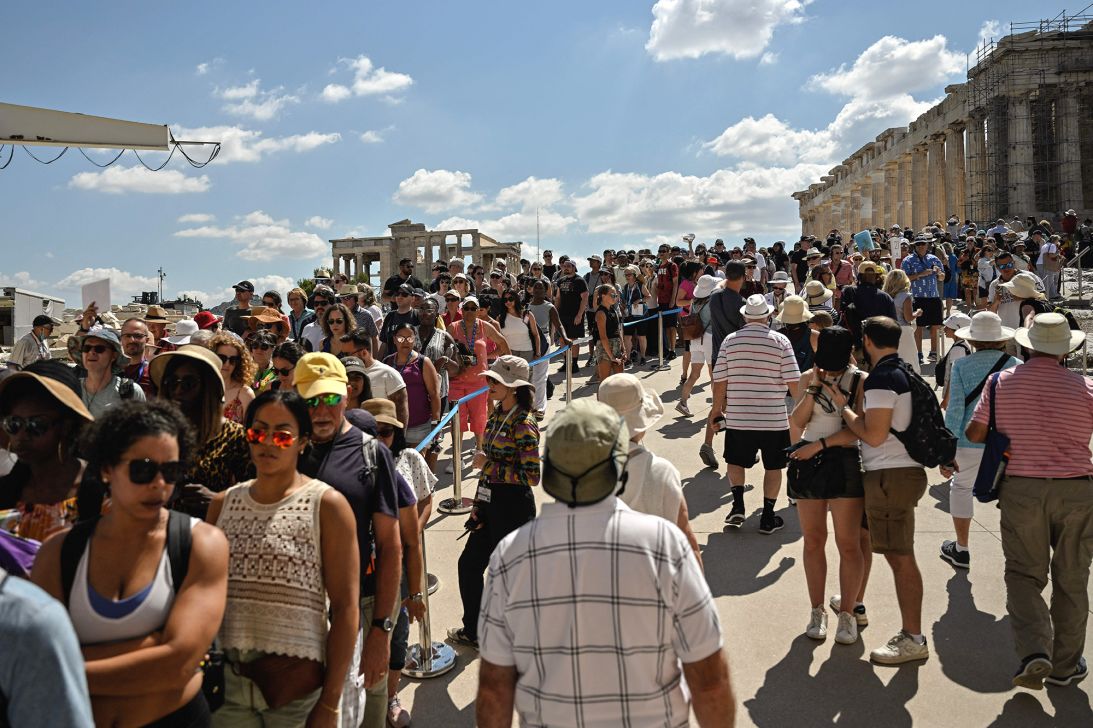
This kind of line near the Acropolis in Athens would try any traveler's patience.
Louisa Gouliamaki/AFP/Getty Images
Canadians, on the other hand, are more collectivist, able to blend in, she adds, and adapt to different cultural spaces, a mindset she identifies with.
Along with evading anti-American sentiment, flag-jacking Americans say they lie because they’re led to believe they’ll be treated better as Canadians abroad.
But all of the tour operators we spoke with agree this notion is groundless.
“It’s more about the behavior that you’re modeling, as opposed to where you’re from,” Barnes of Intrepid says. “If you’re respectful of the local customs and culture, you’re curious and courteous, you’re going to have an amazing holiday.”
Up next
Most popular
-
US detains British commentator Sami Hamdi in middle of national speaking tour
-
Hurricane Melissa is now a rare Category 5 storm as it closes in on a historic, catastrophic landfall in Jamaica
-
The White House’s East Wing is now demolished. Here’s what was lost
Live TV Listen Watch
Follow CNN Travel
Terms of Use Privacy Policy Manage Cookies Ad Choices Accessibility & CC About Subscribe Newsletters Transcripts Help Center © 2025 Cable News Network. A Warner Bros. Discovery Company. All Rights Reserved.
CNN Sans ™ & © 2016 Cable News Network.
|
















